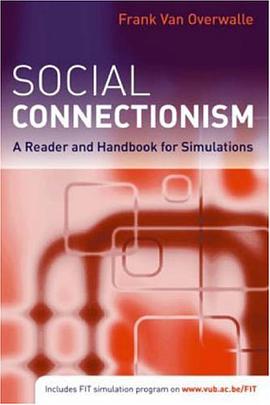

具体描述
Many of our thoughts and decisions occur without us being conscious of them taking place; connectionism attempts to reveal the internal hidden dynamics that drive the thoughts and actions of both individuals and groups. Connectionist modeling is a radically innovative approach to theorising in psychology, and more recently in the field of social psychology. The connectionist perspective interprets human cognition as a dynamic and adaptive system that learns from its own direct experiences or through indirect communication from others. Social Connectionism offers an overview of the most recent theoretical developments of connectionist models in social psychology. The volume is divided into four sections, beginning with an introduction and overview of social connectionism. This is followed by chapters on causal attribution, person and group impression formation, and attitudes. Each chapter is followed by simulation exercises that can be carried out using the FIT simulation program; these guided exercises allow the reader to reproduce published results. Social Connectionism will be invaluable to graduate students and researchers primarily in the field of social psychology, but also in cognitive psychology and connectionist modeling.
作者简介
目录信息
读后感
评分
评分
评分
评分
用户评价
相关图书
本站所有内容均为互联网搜索引擎提供的公开搜索信息,本站不存储任何数据与内容,任何内容与数据均与本站无关,如有需要请联系相关搜索引擎包括但不限于百度,google,bing,sogou 等
© 2026 book.wenda123.org All Rights Reserved. 图书目录大全 版权所有




















